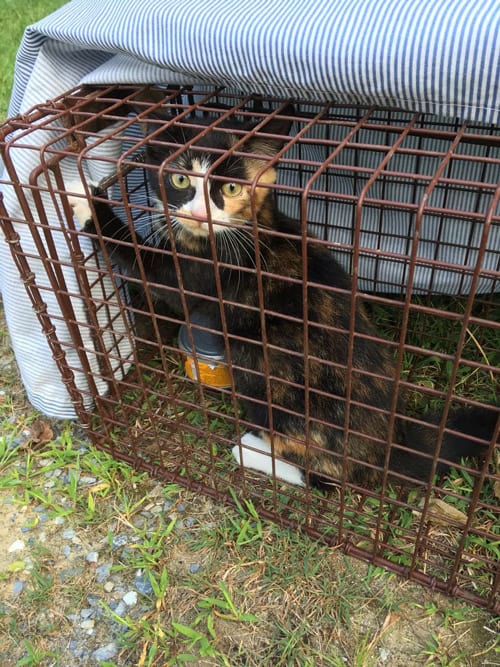
Working Cat Program

Anderson Humane’s Working Cat program exists to provide homes for cats that are not suitable for a traditional indoor home. These cats thrive in settings like barns, stables, and warehouses where they can interact with humans on their own terms!
Adopting a working cat is a mutually beneficial partnership. Caretakers provide a stable source of shelter, food, and water and the cats provide an eco-friendly form of pest control!
What is a Working Cat?
Where do the cats work?
What do Working Cats require?
How much is the adoption fee?

Working Cat Frequently Asked Questions
Do you have any kittens or friendly cats available to become working cats?
No, our working cats are feral or unsocialized adult cats that are not suitable as indoor pets.
What do I do when I first bring the cats home?
When you bring new cats home, they will need to go through a relocation protocol that involves a 2-4 week confinement period. Cats can be kept in an escape-proof room, garage, or XL dog crate with food, water, and a litter box while they acclimate to their new surroundings. After the confinement period has ended, the cats can be released and allowed access to the rest of the property. This protocol helps decrease the chances that cats will wonder or get lost.
Will I be responsible for future vaccinations?
All cats will be current on vaccinations when they are adopted from Anderson Humane. After adoption, you will be responsible for keeping your working cat up to date on vaccinations.
Are two cats better than one?
Yes, cats are social animals who will form bonds with other cats around them. Keeping multiple working cats reduces wandering and provides cats with a sense of security!
Will working cats get along with my poultry, livestock, and horses?
Yes, working cats co-exist well with other animals on the farm. Chicken and other types of poultry are too large to be considered prey by well-fed cats!
Trap-Neuter-Return (TNR)

Trap-Neuter-Return (TNR) is the most effective and compassionate approach to managing community cat populations. Through TNR, free-roaming cats are humanely trapped, spayed or neutered, vaccinated, and then returned to their outdoor homes.
This method helps prevent overpopulation, reduces nuisance behaviors, and improves the overall well-being of the cats. TNR ensures that community cats can live healthier lives while gradually decreasing their numbers over time.
If you would like to rent a trap, please complete the submission form below. Once received, a member of our team will reach out via email.
What is TNR?
TNR, or Trap-Neuter-Return, is a humane approach to managing feral cat colonies. TNR involves humanely trapping the cat, bringing the cat into a scheduled appointment to be spayed/neutered, vaccinated, and ear-tipped, then releasing the cat back to its outdoor home.
Which cats qualify for TNR?
TNR is designed for cats that are living outside, also known as community cats. These cats may are typically feral, semi-feral, or feeder-friendly.
What is an eartip?
An eartip is a universal way to identify that a cat has been spayed/neutered. While under anesthesia, a veterinarian surgically removes a small tip of the cat’s right ear. This allows us to know from a distance that the cat has been sterilized and is likely part of a managed outdoor colony.
What are the benefits of TNR?
TNR prevents the breeding of unwanted kittens, reduces the spread of disease, and reduces nuisance behaviors such as spraying, yowling, fighting, and wandering. Over time, TNR will also reduce the total number of outdoor cats in a community.
Where can I find humane traps?
Anderson Humane rents humane traps from our main shelter. An $85 deposit is required during pickup and will be refunded upon return of the trap. Please complete our Humane Trap Rental Application form here by clicking here.
Humane traps can also be purchased at most hardware stores!
How can I schedule an appointment for TNR with Anderson Humane?
Please email amasten@ahconnects.org for more information on Anderson Humane’s TNR program!
Funding for this website provided by Forefront - the Mission Sustainability Initiative.
Anderson Humane is a registered 501(c)(3) non-profit recognized by the IRS. FE #: 36-6164626 Copyright © 2026 by Anderson Humane.
Anderson Humane
1000 S. La Fox Street
South Elgin, IL 60177
(847) 697-2880







